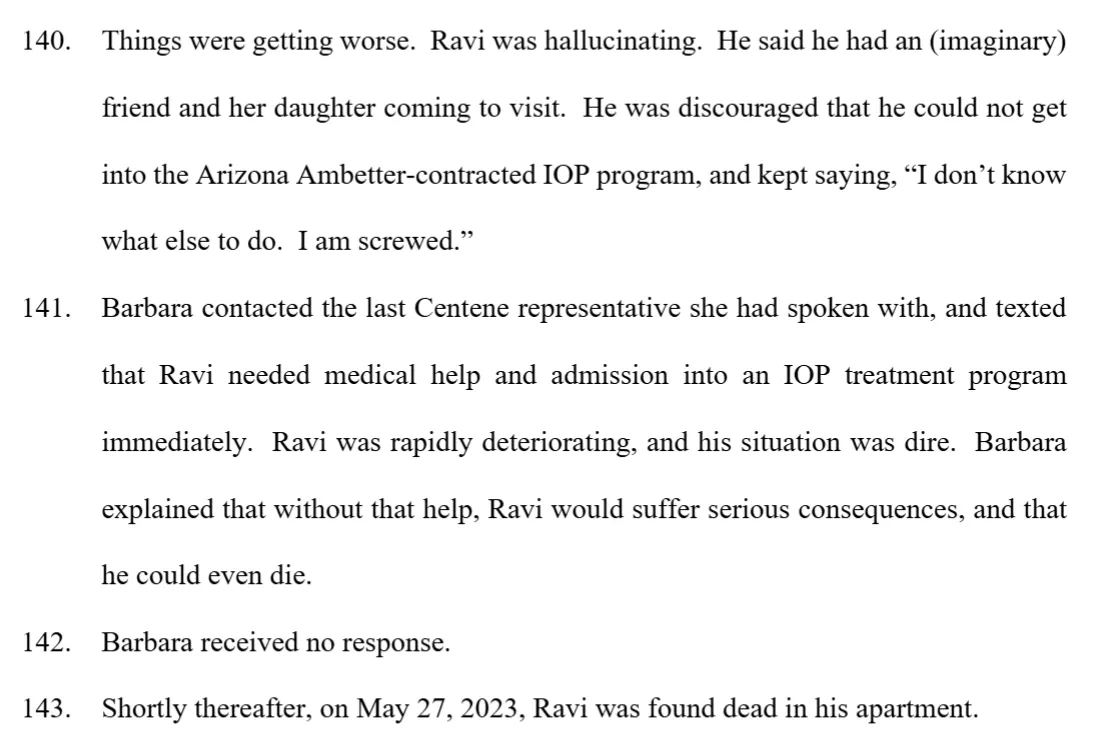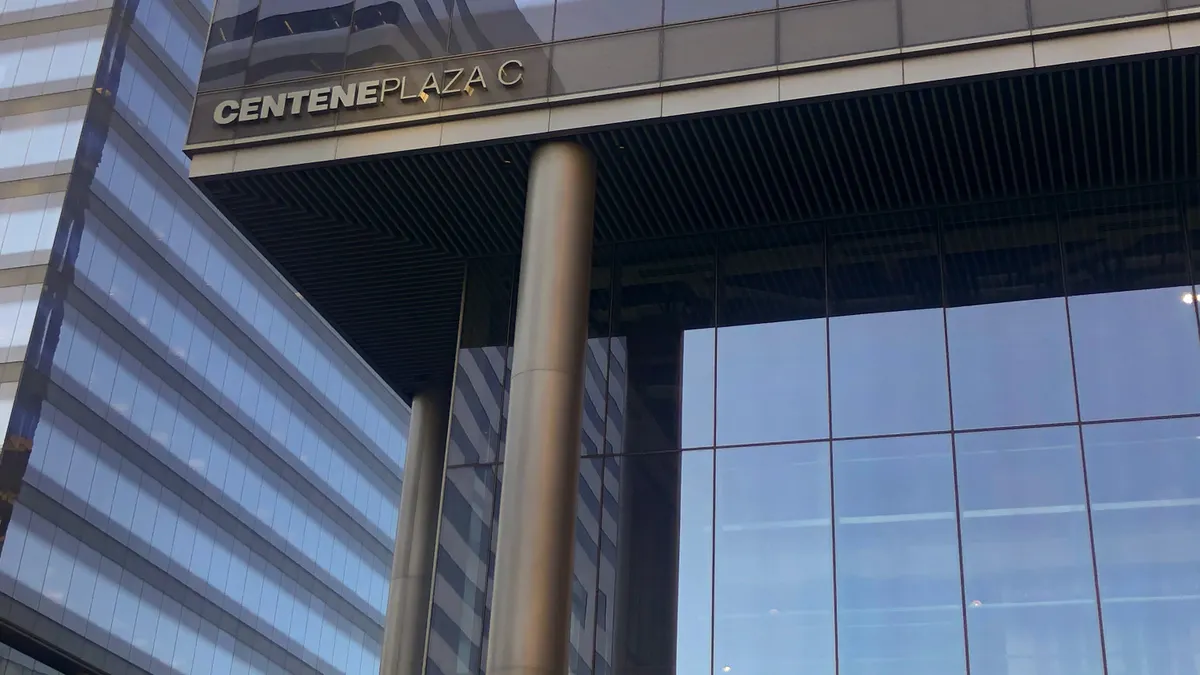Dive Brief:
- Centene is being sued for wrongful death after one of its members died after failing to get the mental healthcare he needed because of the insurer’s inadequate provider networks, according to the lawsuit filed by the member’s mother.
- The suit, filed late May in the Superior Court of Maricopa County in Arizona, accuses Centene’s subsidiary in the state, Health Net, of maintaining “ghost networks” — wherein insurers say providers are in network that aren’t, inflating the care options available under their plans to the detriment of actual access.
- As a result, Centene violated state and federal laws requiring network accuracy and adequacy, according to the suit, which also accuses the St. Louis-based payer of negligence and fraud. Centene did not respond to a request for comment.
Dive Insight:
Health insurers argue that it’s difficult for them to maintain accurate and up-to-date provider directories, due to frequent changes to information and a lack of standardization. But incorrect directories or ghost networks can leave members feeling they’ve been lured into signing up for health plans that are skimpier than advertised.
It’s a widespread issue: Only one-third of provider listings contacted by Senate subcommittee staffers in 2023 were accurate. Though the investigation had a small sample size, it backs up other research finding a meaningful number of providers on plan directories are not actually in network. One study also from 2023 found upwards of 80% of provider listings contained inconsistencies.
The problem is more acute when it comes to mental health, as coverage for therapy and other mental health services continues to lag behind physical care. That’s in part due to a shortage of mental healthcare practitioners, but also because many mental health providers aren’t in network with insurance carriers, patient advocates say. Critics also note that plans aren’t incentivized to keep their networks updated, because the cost of researching provider information changes and issuing new materials would eat into their bottom lines.
All these factors coalesced in the case of 36-year-old Ravi Coutinho, the patient at the center of the lawsuit filed by his mother Barbara Webber last month.
Coutinho purchased an Affordable Care Act plan through Centene’s Ambetter brand in Arizona in 2023, after determining that it had plenty of provider options for mental health and addiction treatment in his home of Phoenix.
The ACA requires plans on the exchanges to maintain an adequate provider network to ensure services, including mental healthcare, are available for their members, and keep their provider directories up to date.
But Health Net’s provider directories were woefully inaccurate, according to the lawsuit. Given it’s difficult for consumers to change their plan after they’ve selected coverage for a particular year, Coutinho was stuck with insufficient coverage — and coverage that Health Net knew was inadequate because the insurer was investigated by Arizona health regulators who found its directories were riddled with inaccuracies, the suit says.
Coutinho was caught in the middle when trying to use the benefits he purchased to treat his depression and anxiety, the lawsuit alleges.
Centene “continuously strung him along, caused delays, and either failed to promptly refer him to providers, or referred him to providers that could not help him ... Ravi’s mental health crises deepened with each passing day,” the suit says.
Coutinho and his mother both tried to contact Health Net’s customer service for help finding a provider but failed to connect with a plan representative, sometimes after being put on hold for over one hour. Eventually, when they did get though, “the Health Net Representative could not identify therapists who contracted with Arizona Ambetter,” the lawsuit says.
That pattern repeated itself multiple times, with Health Net either failing to provide mental health practitioners altogether or referring Coutinho to providers that didn’t match his needs. Coutinho’s condition deteriorated as a result and he was eventually found dead in his apartment, likely due to complications from his excessive drinking, according to the suit.

Roughly 3 in 4 insured adults who receive mental healthcare experience insurance problems, according to a 2023 survey.
That’s despite the Mental Health Parity and Addiction Equity Act of 2008, which requires insurers to treat benefits for mental health similarly to medical benefits. That protection was extended into marketplace plans when the ACA was passed two years later — and, behavioral health services are one of the essential health benefits that all ACA plans are required to cover.
However, compliance with MHPAEA has been poor. A government report published in 2023 found health insurers are still purposefully imposing treatment limitations on mental health and substance use disorder benefits.
Network adequacy and mental health parity have been a recent focus of regulators and lawmakers, with the CMS attempting to shore up both in recent rulemaking. (Though, the Trump administration has decided not to enforce a Biden-era rule requiring insurers to provide access to mental health benefits at the same level as medical or surgical care for people with private insurance.)
Centene is one of the largest healthcare companies in America, and the largest marketplace carrier in the country.
There is a pattern of litigation over the adequacy and accuracy of its networks.
In 2014, Centene’s California subsidiary Health Net was sued by some of its enrollees for misrepresenting its networks. Similarly, in 2017, another Centene Health Net subsidiary was fined $1.5 million by Washington state following consumer complaints about inadequate networks. And, in 2019, Centene’s Oregon subsidiary was sued by a hospital system for falsely representing it as in network.
More recently, in 2021, Centene’s California subsidiary was sued by the city of San Diego for failing to maintain accurate provider directories, in violation of state law.















